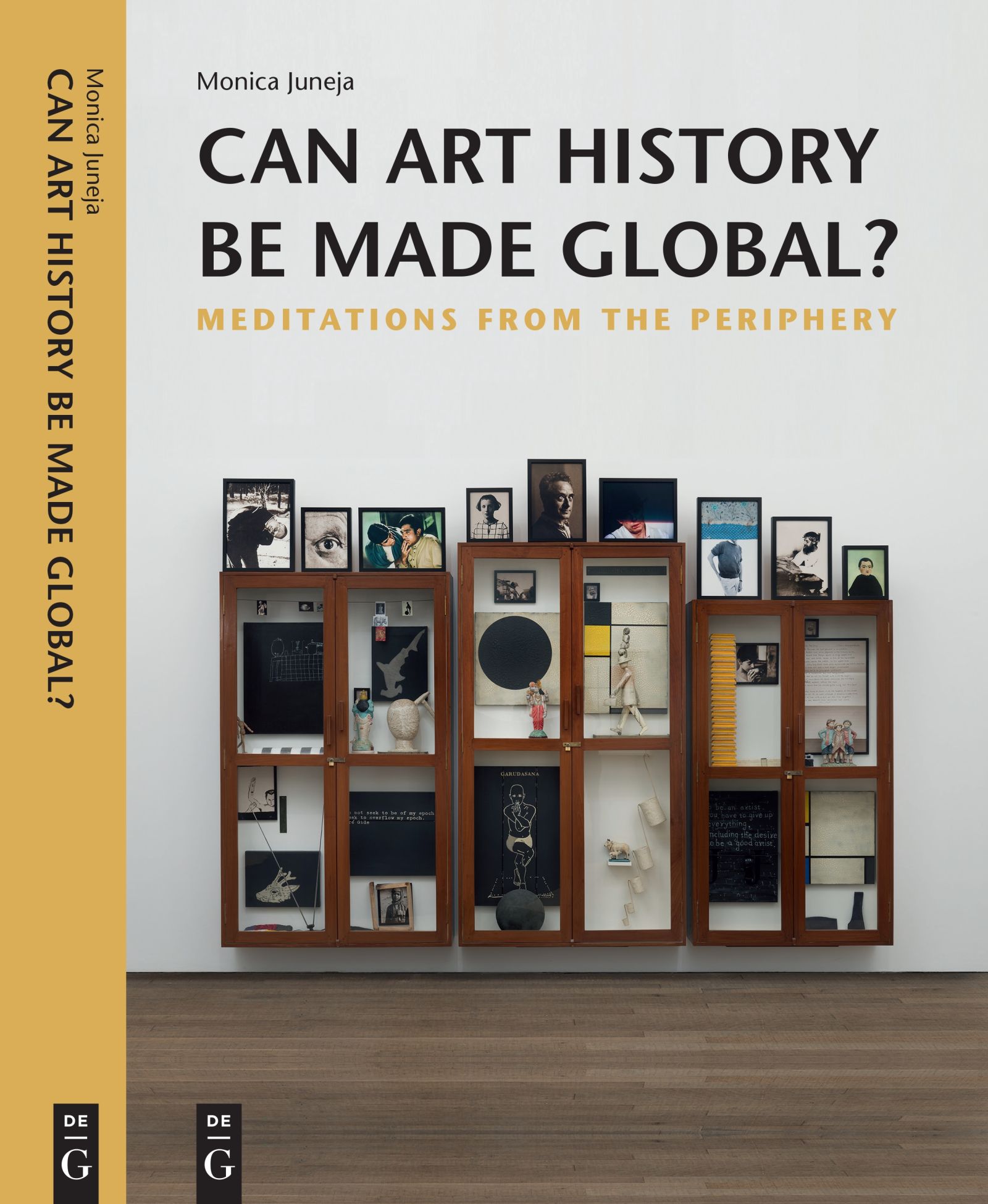Book discussion
Monica Juneja:
Can Art History be Made Global? Meditations from the Periphery

This book responds to the challenge of the ‘global turn’ in the humanities from the perspective of art history. While cautioning against the conceptual traps of a facile globalism, it builds on a theory of transculturation to form the keystone of a critical globality, which would enable art history to transcend different shades of parochialism – Eurocentrism, methodological nationalism, or insulated area studies. Such a perspective carries a radical critique of explanatory paradigms and disciplinary frameworks premised on a bounded understanding of culture. By shifting the focus of enquiry to South Asia, a location designated in mainstream scholarship as peripheral, the book seeks a way for the discipline to translate intellectual resources and insights from segregated domains into globally intelligible analyses. The move to supplement macro-perspectives by descending into the thicket of individual sites asks that we negotiate multiple scales beyond the global – nation, region, locality – and conjoin these to individual subject positions. Does the investigation of art history from a perspective not aligned along the Euro-American axis, though shaped through interaction with globally travelling concepts, challenge us to rethink some of the premises of the discipline so as to grow beyond both claims of universality and radical cultural relativism, and instead privilege an approach that historicises difference and locates it in a field of competing forces?
The five meditations offered here encompass an assemblage of micro-stories, questions, arguments, and tools of transcultural research. Each meditation explores key moments of an art history that takes South Asia as its starting point and primary focus. From here, it aims to question established chronological signposts, inherited teleologies, and art historical assumptions about medium, genre, quality and connoisseurship. By incessantly interrogating established frames, it seeks to rebuild knowledge from the ground up. This book strives not to bring forth another metanarrative, but to engage with a selection of themes from a particular region that together contribute to revitalizing the global with a criticality whose shape is contingent as much on its situatedness as its transcultural dynamics.
13 December 2023, 5:00pm
This will be a hybrid event.
Venue
Palazzo Grifoni Budini Gattai
Via dei Servi 51
50122 Firenze, Italia
To participate online please register in advance via Zoom: https://eu02web.zoom-x.de/meeting/register/u5Mpd-morz0sG9blrtX-j0-TUb3t5sjYG5Fj
After registering, you will receive an automatic confirmation email containing information about joining the meeting. The relevant reading material will also be sent to you in advance in due course (courtesy of the publisher De Gruyter).
Notice
This event will be documented photographically and/or recorded on video. Please let us know if you do not agree with the Kunsthistorisches Institut in Florenz using images in which you might be recognizable for event documentation and public relation purposes (e.g. social media).


